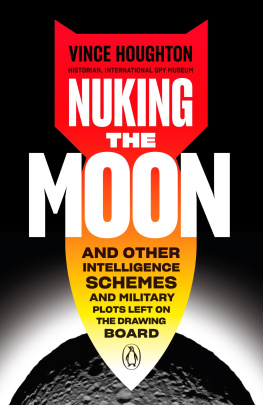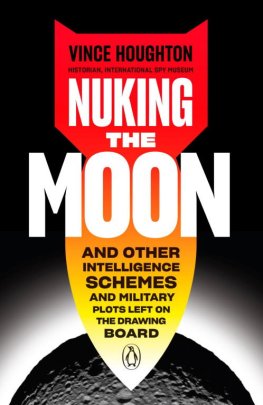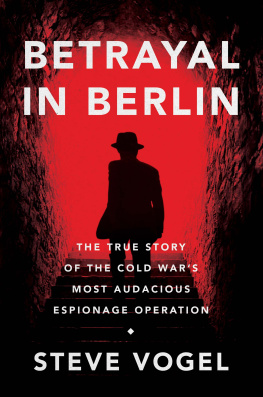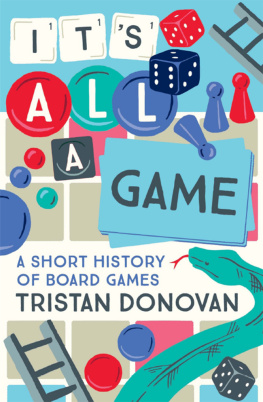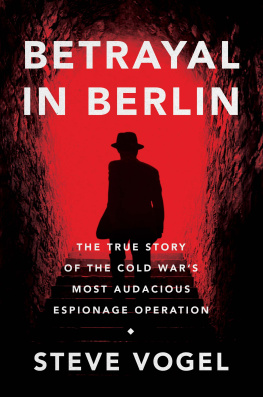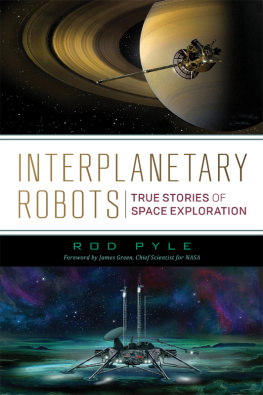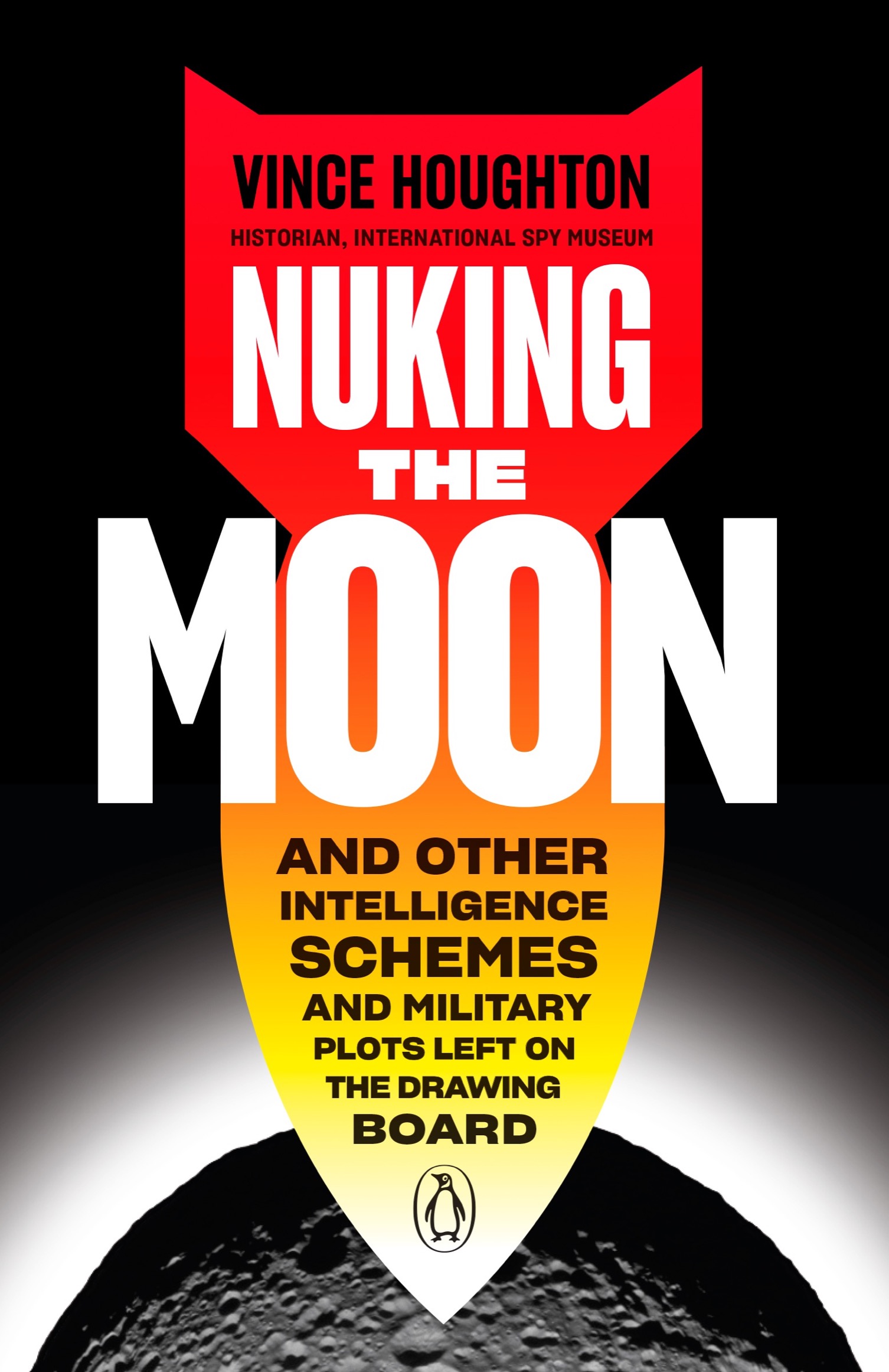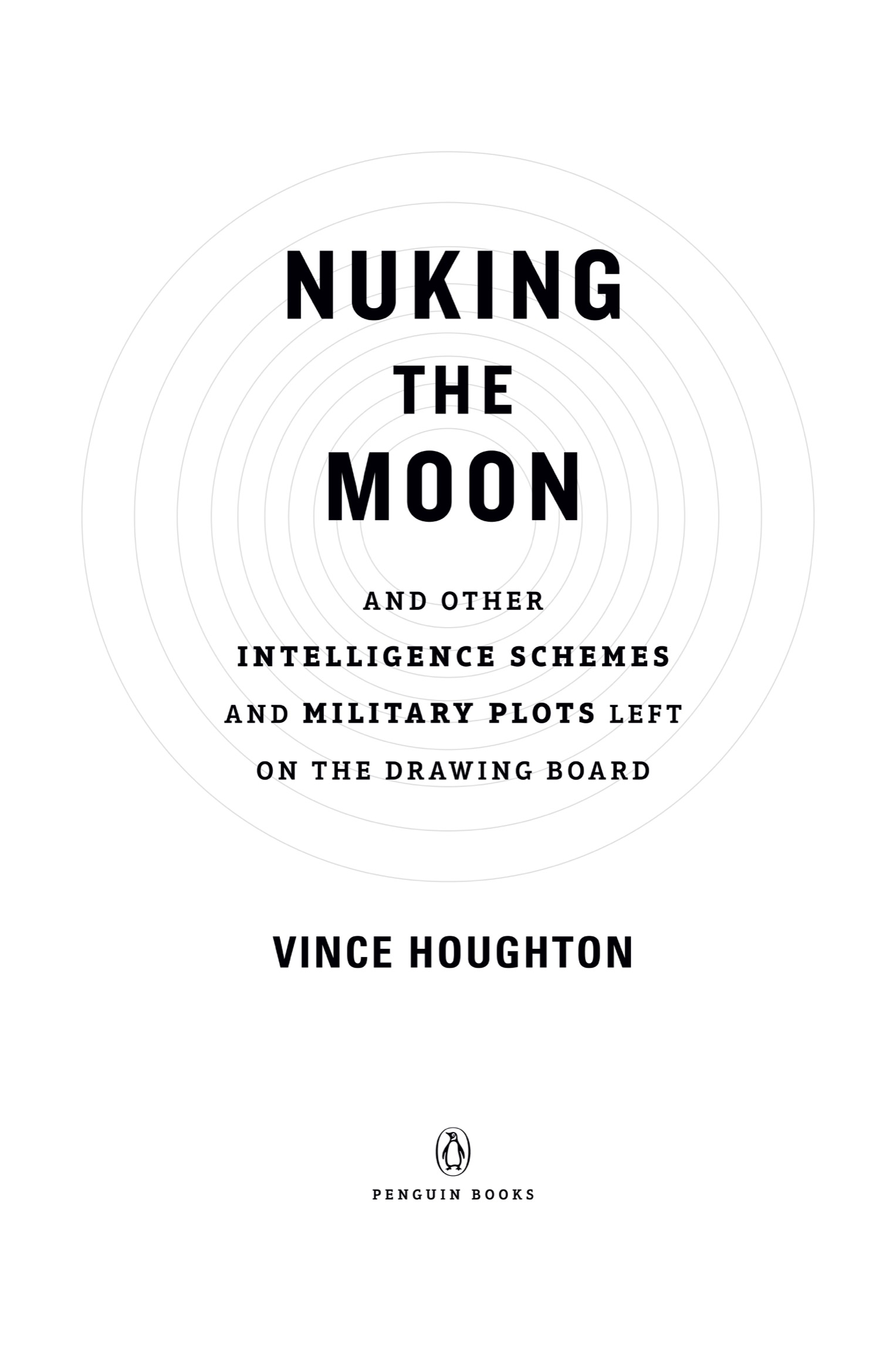MORE PRAISE FOR NUKING THE MOON
Outlandish, informative, hilarious, and deeply terrifying, this book makes Dr. Strangelove feel like a heavily censored documentary.
Robert Wade, co-screenwriter of Casino Royale and Skyfall
Dr. Vince Houghton is smartreally smartand doesnt suffer fools (or foolish plans) kindly. In Nuking the Moon, he hilariously skewers some of the military and intelligence communitys weirdest, wackiest, and most outlandish plots, plans, and covert operations! From the story of the CIAs bugged kitty cat to tales of arming Chinese call girls with poisons, and blowing up the moon, its a great read and highly recommended!
H. Keith Melton, intelligence historian and coauthor of Spycraft
Vince Houghton is a fresh new voice who will have you laughing out loud at some of the serious yet hysterical false starts in the history of the intelligence community.
Jonna Mendez, former CIA chief of disguise
The Cold War wasnt just dangerous, it was also often bizarre, and sometimes even hilarious. Vince Houghton has put together an amazing compendium of schemes and plans that were once top secretand for good reason. This is a compelling book, not only because of the light it sheds on a half-century of American secrets, but because it is a reminder that when human beings go to warhot or coldthey can often be too clever for their own good.
Tom Nichols, author of The Death of Expertise
These are amazing tales, and readers may, despite Houghtons research to verify each project, be left pondering whether the book will be shelved among works of history or science fiction novels. Possibly, however, Nuking the Moon best belongs with political science to remind us that when national survival is believed threatened, desperation and innovation become kindred spirits that can make the otherwise unimaginable become real.
Robert Wallace, former director of the CIAs Office of Technical Services and coauthor of Spycraft
Houghton mixes humor and irony with an espionage historians eye for detail to make Nuking the Moon both entertaining and informative. The litany of bizarre schemes and harebrained ideas had me continually asking, What were they thinking? From ideas like the acoustic cat to synthetic goat poop, and so many ideas related to the use of atomic weapons, I would laugh out loud if it werent so scary. As a CIA veteran, Im just glad that my name cant be found in its pages.
John Sipher, former CIA chief of station and lead instructor at CIAs clandestine training school
PENGUIN BOOKS
An imprint of Penguin Random House LLC
penguinrandomhouse.com
Copyright 2019 by Vincent Houghton
Penguin supports copyright. Copyright fuels creativity, encourages diverse voices, promotes free speech, and creates a vibrant culture. Thank you for buying an authorized edition of this book and for complying with copyright laws by not reproducing, scanning, or distributing any part of it in any form without permission. You are supporting writers and allowing Penguin to continue to publish books for every reader.
LIBRARY OF CONGRESS CATALOGING - IN - PUBLICATION DATA
Names: Houghton, Vince, author.
Title: Nuking the moon : and other intelligence schemes and military plots left on the drawing board / Vince Houghton.
Description: [New York] : Penguin Books, [2019] | Includes bibliographical references.
Identifiers: LCCN 2019003262 (print) | LCCN 2019006293 (ebook) | ISBN 9780525505174 (hardcover) | ISBN 9780525505181 (ebook)
Subjects: LCSH: Military researchUnited StatesHistory20th century. | Military intelligenceUnited StatesHistory20th century. | Espionage, AmericanHistory20th century. | Strategy. | United StatesMilitary policy.
Classification: LCC U393 (ebook) | LCC U393 .H68 2019 (print) | DDC 355/.0709730904dc23
LC record available at https://lccn.loc.gov/2019003262
While the author has made every effort to provide accurate telephone numbers, internet addresses, and other contact information at the time of publication, neither the publisher nor the author assumes any responsibility for errors or for changes that occur after publication. Further, the publisher does not have any control over and does not assume any responsibility for author or third-party websites or their content.
Version_2
To Jon and Rae
CONTENTS
INTRODUCTION: LEFT ON THE DRAWING BOARD
This is a book about desperation.
That word has been so overused and misused that it has lost much of its impact. Too many stories about some local sports team desperate for a win, or some housewives desperate for... whatever that show was about. These pretenders have trivialized a word designed to be used only in the most extraordinary of circumstances. It should be a powerful word, reserved for the urgent and overwhelming feeling that ones life is at risk. Its for the truly existential threats (another misused word), to ones country, ones family, ones friends, or ones livelihood. When the stakes couldnt be higher and the options slimmer. To feel desperate is to believe there are no good options, that everything that has been tried, or could be tried, is destined for failure. Desperation leads us to consider ideas that would have been unfathomable under normal circumstancesbecause desperate people make desperate decisions.
This is also a book about innovation.
Creative thinking about how things workand the possibilities of how things could workhas been the catalyst for the astonishingly dynamic technological transformation of the past hundred years. From the advent of lighter-than-air flight to hypersonic aircraft, from bolt-action rifles to electromagnetic railguns, from ENIAC to quantum computing, from one poor freezing soldier in a trench listening to intercepted wireless messages to the NSAs supercomputers collecting the metadata of billionsbrilliant people with innovative ideas continue to shape our world, and do it exponentially faster than the generations that came before.
But when innovation and desperation meet, trouble will usually follow. If necessity is the mother of invention, desperation is the drunk uncle. The guy who calls only once a year, at 3 a.m. on your birthday, with the greatest idea anyone has ever had. No matter how hard you argue against the logic of his narrative, no matter how many flaws you find in his reasoning, hes resolute.
This will work. It has tohes a desperate man.
Every so often, we are surprised when one of these ideas actually pans out. The U-2 and SR-71 spy planessome of the most innovative aircraft ever designedwere a result of American desperation to see inside the Soviet Union. Nuclear power, computers, the internet, modern textiles, personal encryption, even the process of how some of our food is grown were born out of a nations desperate fear to keep pace with an imposing rival. Much of that history has been written before. Countless books have been published about the remarkable and successful technology developed over the last century by governments for national security needs.
This is not one of them.
Most history books are full of stories of things that happened; this is a history book full of stories behind things that didnt happen.
Here we will take an expansive look at projects, missions, operations, and technology that were seriously considered, but didnt make the grade. Some were ultimately deemed too risky, expensive, dangerous, ahead of their timeor even certifiably insane. Others were canceled merely because they were overtaken by events: The atomic bomb worked, the war ended, the plans were captured, other technology superseded.

